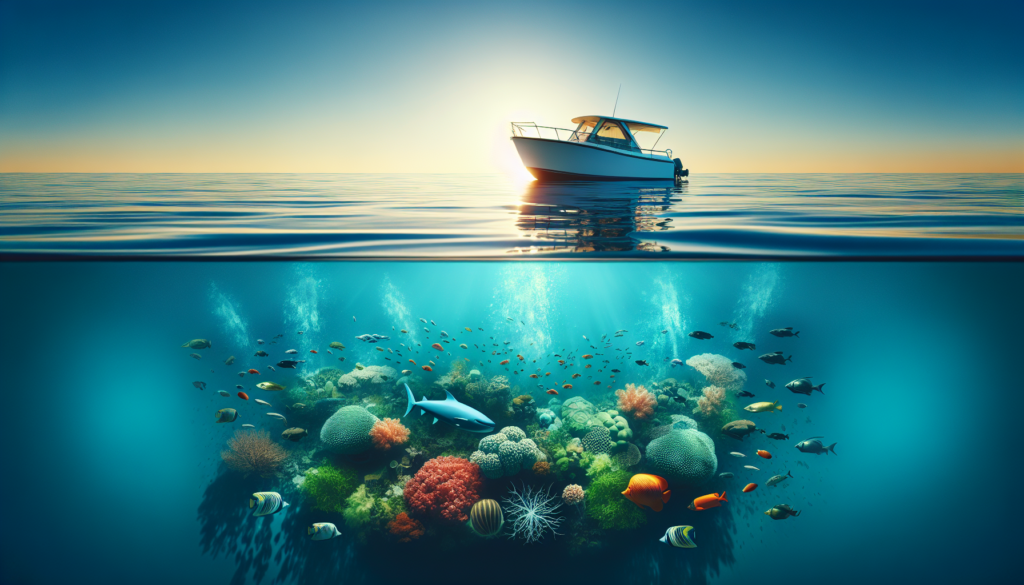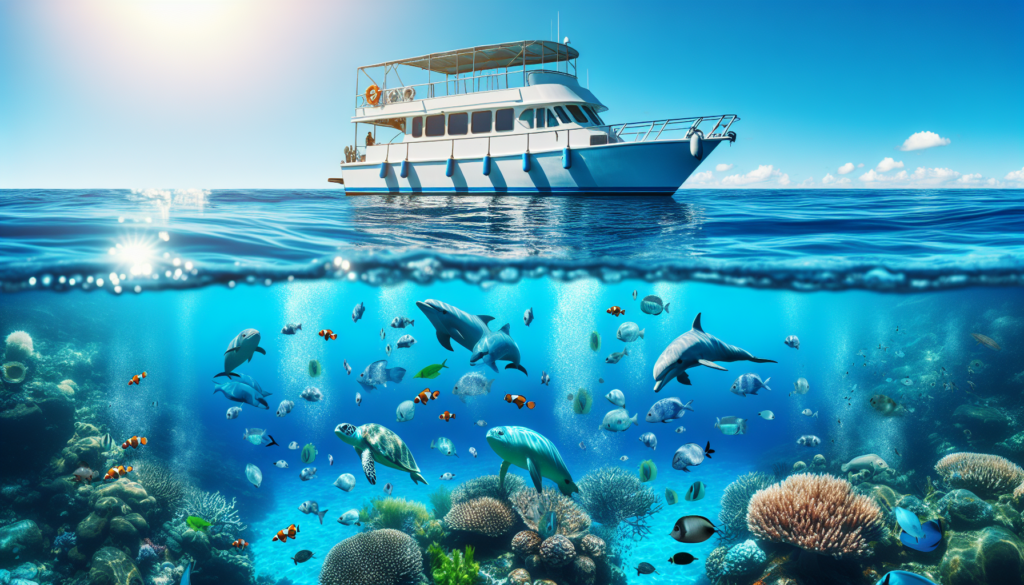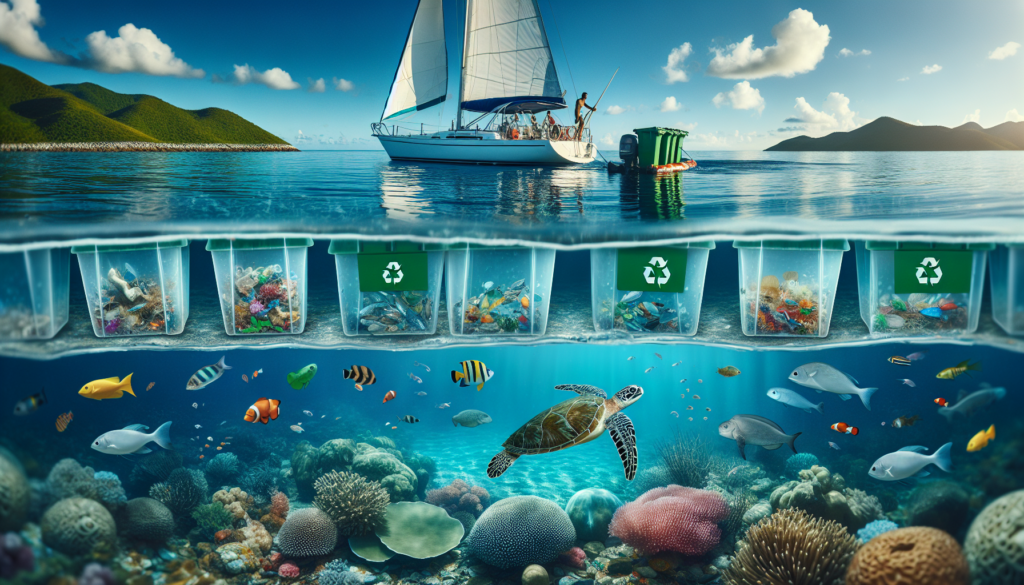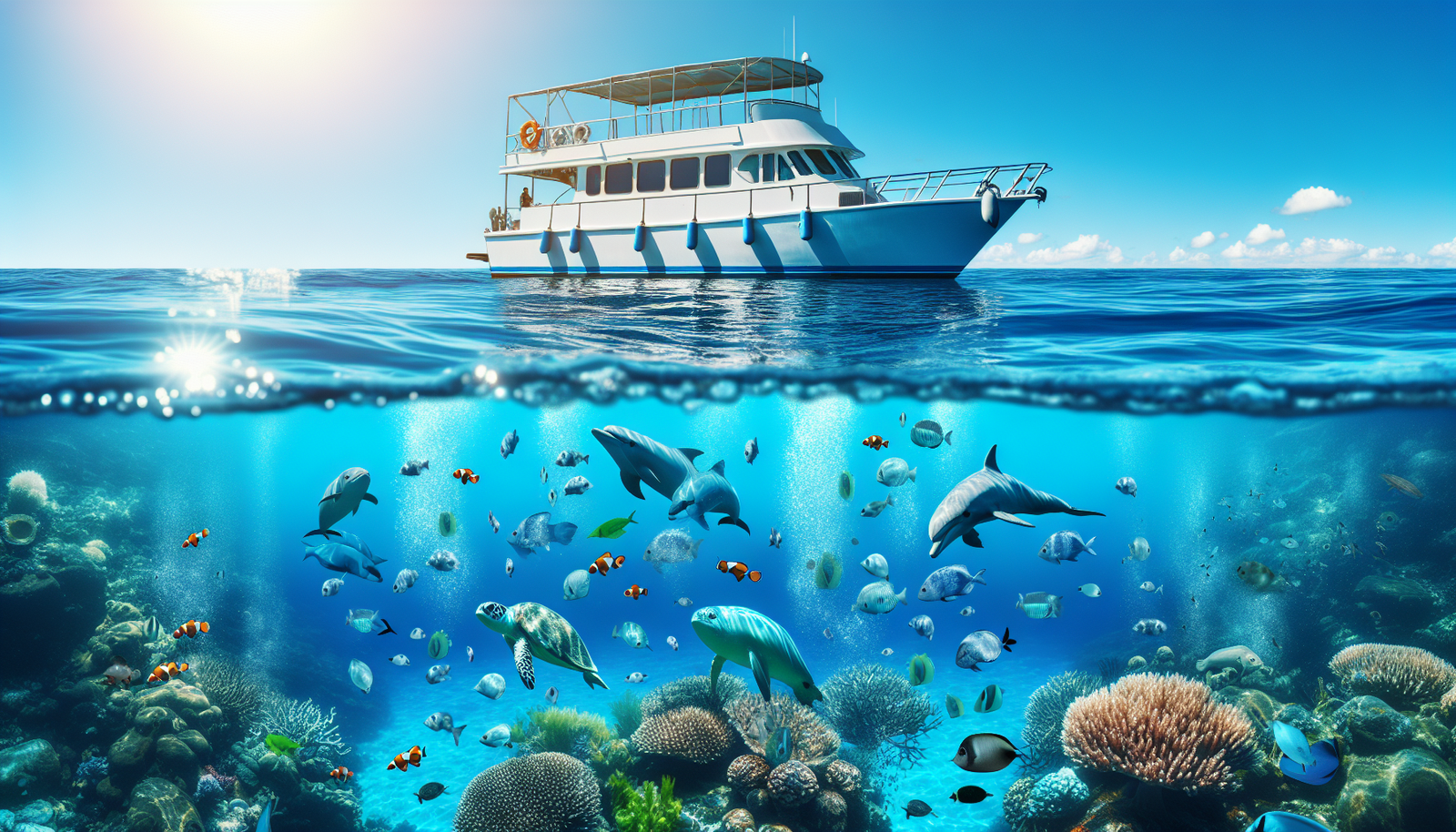Are you a fan of the open seas? Well, then it’s about time you learned just how vital conservation ethics are when it comes to boating. This article will enlighten you on the responsibility every sailor holds towards protecting the marine environment. From understanding the fragility of our oceans’ ecosystems to adopting more eco-friendly practices while sailing, it’s not just about reducing your carbon footprint but rather embodying a lifestyle change that can preserve the beauty of the seas for future generations. Get ready to set sail on a journey of discovery about why being an ethical boater can make a world of difference.

Understanding Conservation Ethics
Imagining a world devoid of the lush green forests, sparkling blue waters, and vibrant wildlife can be a grim thought. This is where the concept of Conservation ethics comes in. It underscores the vital role humans play in preserving the environment and natural resources for future generations.
Definition of Conservation Ethics
Conservation ethics can be understood as a moral guideline or philosophy that aims at protecting the environment, conserving natural resources, and encouraging sustainability. It’s not merely protecting the environment for its own sake, but also recognising the intricate interconnectedness between human beings and nature, thus preserving it for our benefit as well – a reverence for all life forms, if you will!
Application of Conservation Ethics in Everyday Life
The spirit of conservation ethics can be distilled into our everyday lifestyle choices – from recycling and composting initiatives at home to using public transportation, reducing energy consumption, and educating oneself and others about biodiversity and ecological preservation. It’s not just about grand gestures but equally about small, routine decisions that culminate in less harm to our environment.
Role of Conservation Ethics in Outdoor Sports
Outdoor sports, by their very nature, involve interaction with the environment. Here, conservation ethics serves as a compass, directing us to enjoy and value the outdoors responsibly. Whether it’s fishing, hiking, camping or boating, adhering to these ethics minimizes detrimental impacts and preserves the natural beauty of these spaces. It’s about “leaving no trace” and promoting active responsible enjoyment of the great outdoors for all.
The Role of Boating in Eco-Conservation
Boating is a popular outdoor activity that can either promote or harm aquatic ecosystems, depending on how it is carried out.
Effects of Boating on Aquatic Ecosystems
Boats can inadvertently become carriers of invasive species, transferring them from one body of water to another. In addition, accidental fuel leaks or improper disposal of waste can lead to toxic pollution, causing significant harm to aquatic life. Disruptive boating practices can also disturb the behavioural patterns of marine animals, potentially leading to their displacement or harm.
Benefits of Responsible Boating for the Environment
On the flip side, practicing responsible boating can actually aid in aquatic conservation. Boaters can contribute to scientific research by observing and reporting unusual animal behaviours or documenting aquatic species. Furthermore, cleaning boats regularly and thoroughly to avoid the spread of invasive species, using environmentally friendly fuels, and reducing speed in sensitive marine zones can make a big difference in the health of our aquatic ecosystems.

Conservation Ethics and Boating Laws
Boating activities are widely regulated to ensure both safety and sustainability. Conservation ethics play a crucial role in shaping these laws.
Laws Regulating Boating Activities
There are numerous laws in place across the globe to regulate boating activities. These may pertain to speed limits, having the necessary safety equipment onboard, adhering to buoyancy regulations, or even restricting access to certain regions during specific seasons to protect marine life.
The Need for Laws Influenced by Conservation Ethics
Laws play a fundamental role in codifying our responsibilities towards the environment into tangible actions. Laws influenced by conservation ethics help establish a legal framework which, in turn, seeks to prevent or mitigate environmental harm from boating activities. They not only guide boaters’ conduct, but also provide punitive measures for serious breaches.
Applying Conservation Ethics in Boating
The essence of conservation ethics doesn’t just lie on paper or in principle. Its true victory lies in its seamless incorporation into our behaviours and habits.
Best Practices while Boating
Best practices while boating could range from regular maintenance of boats to avoid leaks, mindful disposal of waste, avoiding disturbing marine life, adhering to speed limits particularly in sensitive zones, and educating other boaters about the importance of these actions.
Educating Boaters about Conservation
Education is the foundation of any commitment towards conservation. Learning about the aquatic landscape, its unique demands and sensitivities, can greatly advise a boater’s conduct. Environmental stewardship can be fostered through courses, workshops, and even simple conversations between boaters and conservationists.

Impact of Non-Ethical Boating
Boating, when carried out without due consideration for conservation ethics, can have grave repercussions.
Effects of Non-Ethical Boating on Aquatic Fauna
Non-ethical boating could involve rash driving, littering, disturbance of wildlife, fuel leaks or negligence towards maintaining hygiene on the boat. Apart from immediate physical harm, such actions can lead to detrimental, long-lasting effects on the behaviour, habitats and survival of aquatic fauna.
Long Term Damage from Irresponsible Boating
In the long run, irresponsible boating not only harms the aquatic life, but also disrupts the balance of entire ecosystems. Frequent disturbances can make certain habitats uninhabitable, disruptions in the food chains can devastate multiple species and unchecked pollution can lead to water bodies becoming ‘dead zones’.
Eco-Friendly Boating Equipment
One of the areas where boating and conservation come together is in the design and use of eco-friendly or ‘green’ equipment.
Green Boating Technology
Innovations in boating technology today are steadily shifting towards sustainability. Be it efficient electric motors, bio-degradable boat cleaning products or materials that reduce the boat’s energy consumption – green boating technology is not only a possibility but also becoming a reality.
Role of Eco-Friendly Equipment in Conservation
Eco-friendly boating equipment plays an important role in aquatic conservation by reducing pollution, minimising harmful emissions and lowering the risk of invasive species spread. They exemplify a perfect marriage of recreation with responsibility towards nature.

Responsibilities of Boaters in Conservation
Just as we inherit the joy of exploring nature’s beauty, so too do we shoulder the responsibility of its preservation.
Personal Responsibilities to Aquatic Life
Boaters need to recognize their personal responsibilities towards aquatic life. This includes respect for different species, avoiding damage to their habitats, adhering to regulations that protect them and constant vigilance for any signs of distress or unusual behavior which may need reporting to relevant authorities.
Taking Action: Reporting Irresponsible Boaters
One of the key responsibilities of any conscientious boater is to report any instances of irresponsible or harmful boating. This not only discourages damaging behavior but also assists in maintaining safety and cleanliness in common marine areas.
Training and Certifications for Ethical Boating
Training and certifications are tools that promote a higher standard of behavior among boaters, encouraging an environment of respect and protection for the waterways.
Boating Courses Incorporating Conservation Ethics
Many contemporary boating courses include modules on conservation ethics, teaching boaters about the importance of environmentally friendly boating practices. They leverage education as a means to equip boaters with the knowledge and the ethos to care for marine life.
Certifications Recognizing Responsible Boaters
Certifications that honour responsible boaters serve to incentivise ethical boating practices. They create a culture where boaters are recognized and lauded not just for their boating skills but equally for their commitment towards the conservation of aquatic ecosystems.
Conservation Organisations and Boating
Conservation organisations play a significant role in promoting ethical boating practices while shaping the policy and community discourse around it.
Role of Conservation Organisations in Promoting Ethical Boating
Through campaigns, research, and on-ground initiatives, conservation organizations work towards promoting ethical boating. They foster partnerships, influence policies, and raise awareness about the long-term benefits of conservation.
Supporting Conservation Organisations as a Boater
Supporting these organisations, either through financial contributions, partnership in initiatives or active participation in awareness campaigns, is an excellent way for boaters to contribute to the cause. The tide of conservation, after all, lifts all boats.
The Future of Conservation Ethics in Boating
There has been a paradigm shift, reflecting an increased awareness of the ethical responsibility towards conservation in boating. This bodes well for the future.
Predicted Trend towards Eco-Friendly Boating
With the growing focus on green technology and increased consciousness about the consequences of human activity on the environment, the future of boating aims to be eco-friendly. The predicted trends point towards not only more efficient and sustainable equipment but also towards an increased uptake of responsible boating practices.
Technological Advances in Conservation-Based Boating
Technological advancements are streamlining the boating experience to make it more compatible with conservation efforts. With big strides in renewable energy, custom materials, and ecological engineering, the future of conservation-based boating looks promising indeed.
Any act of conservation is fundamentally an act of hope – a belief in the possibility of a better, greener world. With concerted efforts and shared responsibility, boating can not only coexist with conservation, but also actively contribute to it. Happy boating and happier conserving!

